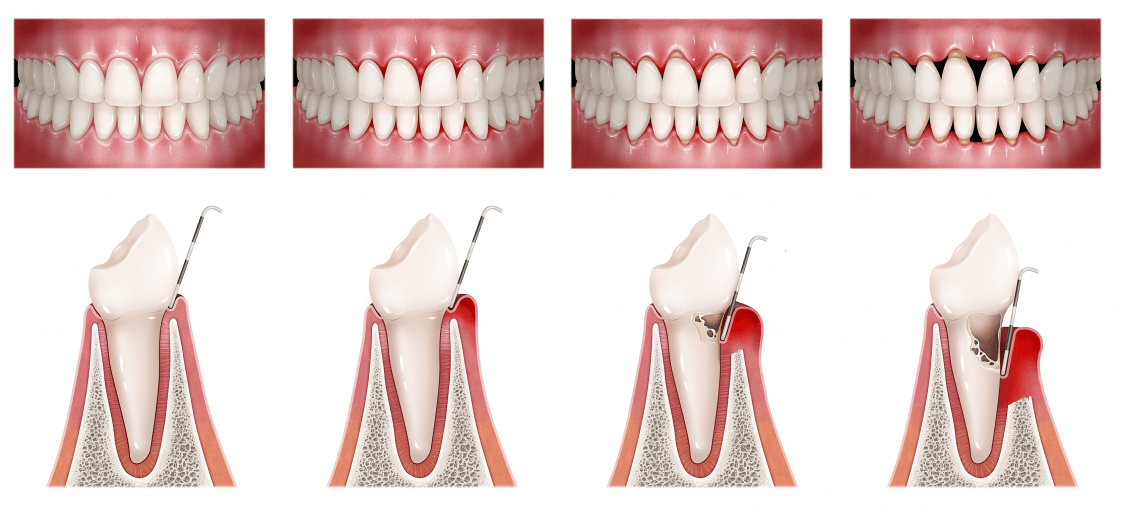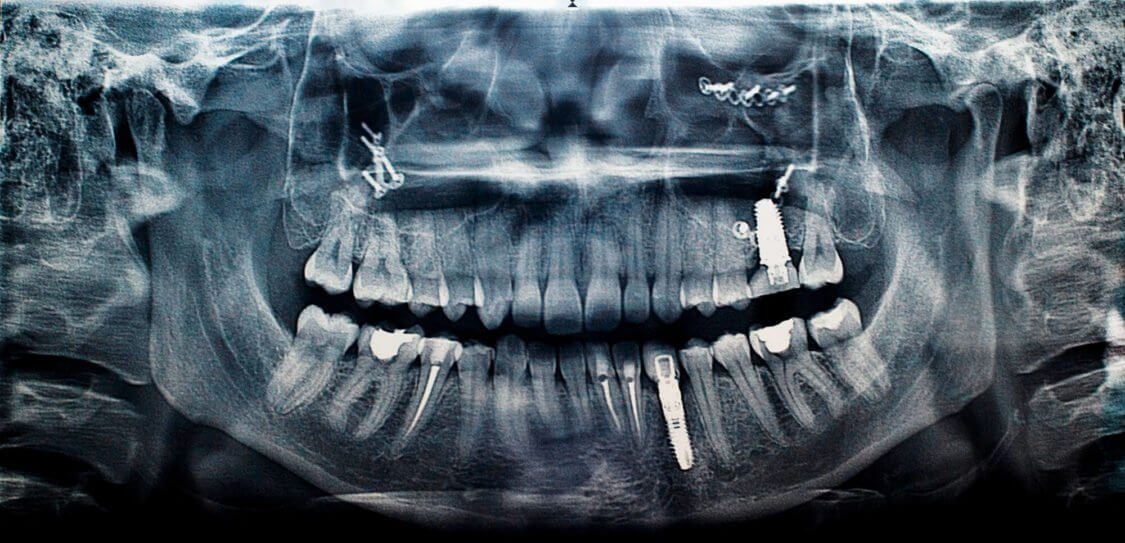Existen muchos síntomas que indican que las encías y el hueso alveolar están enfermos:
Existen muchos síntomas que indican que las encías y el hueso alveolar están enfermos:

There are several symptoms that indicate disease of the gums and alveolar bone:
All these symptoms may indicate the following periodontal diseases: gingivitis or periodontitis or, in the case of patients with dental implants, mucositis and peri-implantitis.
Todos estos síntomas pueden indicar las siguientes enfermedades periodontales: una gingivitis o periodontitis y en el caso de los pacientes con implantes dentales, mucositis y periimplantitis.
Mucositis and peri-implantitis
Mucositis and peri-implantitis are periodontal diseases that affect people with dental implants.
Peri-implantitis is an inflammatory disease around the bone that supports an implant. It is caused by a bacterial infection and exacerbated by risk factors such as alcohol consumption or smoking. The most obvious symptom is bone loss and this is usually associated with additional inflammation of the surrounding soft tissue. Mucositis is an inflammatory reaction in the soft tissue surrounding a dental implant. It usually manifests itself with bleeding gums, reddening and pain.


Periodontal treatment
Leaving these diseases untreated and allowing them to develop can result in deterioration of your general health. They also represent a real risk factor for cardiovascular diseases such as myocardial infarction or stroke, or metabolic diseases such as diabetes mellitus.
Moreover, the development of periodontal diseases can, in the long term, lead to tooth loss or rejection of implants. However, if periodontal diseases are detected in time they can be treated successfully. In some cases, even lost bone and receding gums can be completely restored as there is a wide variety of specialised treatments available which, if handled by experts, have a very good prognosis.
The Periodontal department of the Maxillofacial Institute offers the following periodontal techniques: